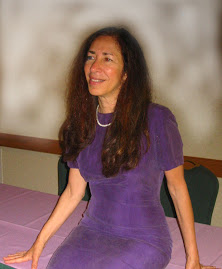This morning, I received a letter from a reader who had experienced both physical and sexual abuse from her parents while growing up. She was eventually placed in foster care, and then as an adult, made every effort toward reconciliation with her parents. She spent time with them and tried to be loving toward them. Rather than the healing she had hoped for, she found that all of her encounters with her parents left her feeling miserable, and so at the suggestion of her therapist, she finally stopped her visits to them. She wrote to me wondering if she needed to be in contact with her parents in order to forgive them, and asked how she could tell if she had, in fact, completely forgiven them.
Her questions really are about just how far forgiveness should extend, and the key, I think, lies in understanding that forgiving does not equal allowing. Many of us think that forgiving means opening all the doors to our hearts and our lives and welcoming the person we were angry at back in. But in fact, doing that may subject you to dangers that you can’t handle. The danger may be physical, or it may be emotional, or even psychic. To continue the relationship may mean allowing yourself to be undermined and enervated to the point where you have no energy or love to give to anyone else. It would be wonderful to be able to be strong enough to be in the presence of those who have been abusive to you and to remain centered and loving, but you need to be realistic about where you are actually at and what you are capable of—and what is healthy for you.
Here’s what I wrote to the woman who contacted me:
Forgiving does NOT necessarily mean continuing to have relationship with people who have abused you. To forgive means letting go of anger and blame, accepting that the perpetrator did the absolute best he or she could at that time. It means wishing that person well, inwardly asking the Creator to heal that person. Along with that goes the realization that the person may not heal, may not change, and putting yourself in the path of that person may not be wise.
To forgive also may mean allowing the sadness that comes when you accept fully the reality that deep pain was inflicted on you by that person, and that there's nothing you can do about it except embrace that truth calmly and in faith. It's coming to peace with that sadness, and holding it inside of you like a child in need of love. In a funny way, accepting the sadness contains it, so that you can make room inside for other things, including joy. Coming to terms with the sadness and the imperfection of the other allows you to give up the notion that you can somehow "fix" the situation or "fix" the person who hurt you--you can't. You never will. That is in the hands of the Creator. Understanding this fully is what will give you the strength to both hold that person in love and keep your distance when that is the wise thing to do.
Forgiveness never should involve taking on more pain than you already have experienced. Instead, forgiveness should allow you to feel the beauty and purity of your own heart. Every day, you can inwardly offer the person who hurt you a prayer for healing, and inwardly offer them your blessings and goodwill. At the same time, you can pray for your own illumination, protection, peace, and wisdom. Another thing you can try is to give yourself a TAT session, which is one of the best methods I have found for experiencing wise forgiveness. I have used it both on myself and with many clients successfully. To try it on yourself, go to www.tatlife.com and download the free booklet, or contact me for help.








